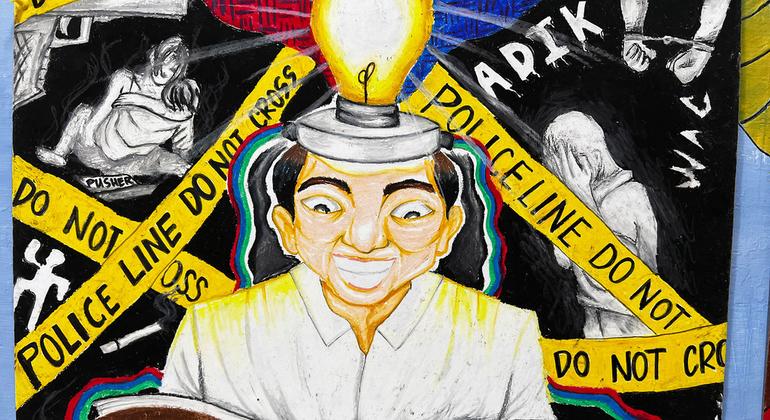In the recent past, the Philippines was plagued by a brutal war on drugs orchestrated by the previous administration, resulting in the deaths of thousands of individuals across the Southeast Asian country. However, a new era of compassion and understanding has emerged, starting from the grassroots level and spreading throughout the nation.
One of the champions of this more humane approach is Michael John Maestro, a registered nurse working on drug-abuse prevention and treatment at the Antipolo City Anti-Drug Abuse Office. Supported by the UN Office on Drugs and Crime (UNODC), Maestro has been instrumental in changing the narrative around drug addiction in the Philippines.
During a visit to Antipolo, located near the capital Manila, UN News’ Daniel Dickinson had the opportunity to meet with Maestro and learn about his work firsthand. Maestro shared a touching story about a young man, whom he referred to as Carlo, who struggled with methamphetamine abuse and exhibited symptoms of schizophrenia. Carlo’s family, recognizing the danger he posed to himself and others, took the brave step of seeking help from Maestro’s office.
With the support of anti-psychotic medication and compassionate care, Carlo’s transformation has been nothing short of remarkable. He no longer experiences psychotic episodes, his mood has improved significantly, and he is now able to engage in activities like playing basketball with his peers. This success story stands in stark contrast to the punitive approach of the past, where individuals like Carlo would have been stigmatized, incarcerated, or even killed.
Maestro emphasized the importance of viewing drug addiction as a medical and mental health condition that requires treatment, rather than punishment. This shift in perspective has led to a surge in individuals seeking help at the Antipolo City Anti-Drug Abuse Office. In the first five months of 2024 alone, 36 patients have voluntarily sought treatment, surpassing the total number from the previous year.
Beyond providing medical assistance, Maestro also focuses on reducing the stigma attached to drug addiction. By fostering respect and empathy towards individuals struggling with substance abuse, he believes that societal perceptions can gradually shift. Through his outreach efforts at schools and community centers, Maestro has witnessed a growing willingness among people to engage in conversations about drug addiction and mental health.
The images of young men playing basketball in Antipolo City serve as a poignant reminder of the transformative power of compassion and support. As communities come together to support individuals like Carlo on their journey to recovery, the hope for a more inclusive and understanding society grows stronger.
In collaboration with organizations like UNODC, advocates like Michael John Maestro are paving the way for a new era of drug policy in the Philippines—one that prioritizes healing and rehabilitation over punishment and stigma. By sharing stories of resilience and recovery, they are challenging long-held beliefs and fostering a culture of empathy and understanding.
As the nation continues to navigate the complexities of drug addiction and mental health, the work of individuals like Maestro serves as a beacon of hope and inspiration. Through their dedication and compassion, they are not only changing lives but also reshaping the narrative around drug addiction in the Philippines.









